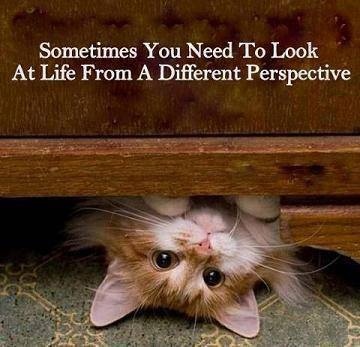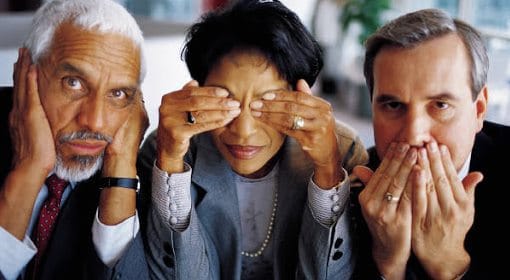25 Low Self Esteem Characteristics and Symptoms

Low self esteem is the source of almost every problem in our life. If you want to improve your life, it is important that you can identify the main low self esteem characteristics.
In general, some low self esteem characteristics are the tendency to have thoughts and feelings that are negative. What are 4 characteristics of someone with low self-esteem? To be afraid to make mistakes. Constant dissatisfaction and frustration. The tendency to be suspicious and defensive. Lack of boundaries and assertiveness, because of fear of abandonment.
What triggers low self-esteem? Fear of abandonment and fear of being hurt are also important low self esteem characteristics as well as avoiding being alone. Fear of change, evasive and lack of communication.
Let’s see now the 25 top low self esteem characteristics:
1. Self-pity. We cannot cope with life if we are feeling sorry for ourselves and not taking responsibility. If we learn to feel our pain, understand it and learn from it we will be in a better position to cope with life events instead of dwell on self-pity. Feel and act like a victim. Expecting the worst in life and becoming powerless. The victim mentality causes you to think that you cannot make the changes in your life.
2. People with low self esteem often feel angry and frustrated about the person that they are. Often, this anger towards the self is rooted in previous experiences of being neglected, abandoned, hurt, or abused. These offenses typically trigger hatred towards the offender, but repeated or severe trauma may eventually leave the victim feeling like he or she somehow deserved the mistreatment. As a result, the loathing and anger that arose out of these negative experiences become misdirected inwardly, and the person ends up hating himself or herself instead. Self-Hate involves not only feeling deserving of being hurt and going through bad things, but also feeling unworthy of experiencing success or accomplishing good things. This negative self-judgment can eventually spiral into self-sabotage, where the person does actions that will prevent him or her from achieving success even when success is possible. People with low self esteem do this to fit their mentality that they are failures and are good for nothing; in which case, their negative self-image becomes a self-fulfilling prophecy that continues the cycle of further lowering their sense of inner worth. Self-hate is outwardly manifested through such signs as emotional detachment, unexplained outbursts of rage, alcohol or drug abuse, and self-harming actions like cutting. People who struggle with self-hate also often experience internal monologues that affirm they are worthless, deserve to be abused or treated poorly, are too weak and pathetic and don’t deserve to be comforted.
3. Judgmental. To use judgment to feel better about themselves and put other people down.
4. Break agreements, violate own standards. They don’t believe in themselves.
5. Cover, phony, because they can’t be natural.
6. Exaggerate, pretend, and lie because of their insecurity. When you experience insecurity, your tendency is to believe that you are never good enough. Insecurity leads you to believe that you are incompetent and helpless to face problems in life.
7. Self-deprecating, shameful, blaming, critical.
8. Nice person, constant approval-seeking, people pleaser because their fear of rejection. Fear of rejection is an irrational fear of not being accepted for who you are. It is cause by lacking confidence and esteem. Would you rather keep this fear of rejection or take risks and live the life you deserve with happiness and joy?.
9. The tendency toward negative attitude and pessimism. When you immerse yourself in pessimism, you become a victim. You become powerless.
10. Rationalize to justify fear of change. Even if you doubt you can change to improve your esteem, there is always the option to see it as a possibility. Once you realize that it is possible, then you will not be so hard on yourself and with perseverance, you will start taking small steps and notice small changes.
11. Jealousy /envy , they feel unlovable and unworthy. You don’t have to do anything to earn your worthiness. The belief that your worth depends on external factors keep you trap in low self esteem. If you can get in touch with yourself and allow yourself to accept the fact that you are worthy, you are going to be able to overcome this trap.
12. Perfectionist , fear of failure and afraid to make mistakes. Perfectionism a defense mechanisms executed in an attempt to bolster self esteem. Feeling inadequate inside, they devote tremendous amounts of effort and energy into filling up or compensating with this perceived sense of inadequacy. As a result, they will usually exert an abnormally large amount of time and effort into making sure that they are always the best dressed in the party, that they don’t have a hair out of place, that they get perfect grades in school, or that they get named Best Employee every month at work. They usually have very high ideals for themselves, often to the point of having unrealistic goals. To the perfectionists, getting it 99% right is still considered a failure. They have a black-and-white, all-or-nothing frame of mind, so anything less than perfection-even at a small margin-is not good enough. They get very upset and tremendously disappointed with themselves when they make a mistake in front of others, and even the most trivial mistakes make them feel like they have committed a mortal sin. They will spend large amounts of time replaying these upsetting scenes in their mind, incessantly evaluating what they could have done better.
13. Dependencies – Codependency. Codependents have destructive relationships that are one-sided pleasing and therefore abusive. Addictions, Compulsive, stagnant. Eating disorders and other disorders.
14. Not liking the work one does.
15. Leave tasks and relationships unfinished, lack of intimacy in relationships.
16. Judge worth by comparing, feel inferior. They feel insignificant in the grand scheme of things, and believe that they have nothing valuable or worthy to offer anyone or the world as a whole. Often, they feel devoid of a sense of life purpose, and even go as far as believing that their life is not as important or valuable as that of others. They feel helpless and may give up hope that they are capable of doing anything that can improve their life and turn things around for the better.As a result, they begin showing signs of poor performance, as their loss of hope and feelings of hopelessness diminish any sense of drive and ambition that they might have previously had. Ultimately, they stop trying to achieve anything, and may display lethargy, withdraw from relationships, and start neglecting regular self-care habits such as brushing hair, showering, washing clothes, or even eating.
17. Doesn’t accept or give compliments.
18. Excessive worry and anxiety. One of the most common low self esteem characteristics is fear and anxiety. This people are extremely anxious and lack confidence. The difference between fear and anxiety is that with fear, you can identify the source of your emotion whereas with anxiety the source is unidentifiable. They fear doing something that may confirm their long-held suspicion that they are indeed failures, and also fear doing things that may bring the risk of others seeing their inadequacies. Consequently, they may fall into inaction and underachievement, as they refuse to challenge themselves to new projects and tasks for fear of not measuring up to expectations and risking humiliation. Because they may also view themselves as inadequate and incapable, they go through life in constant anxiety about their ability to make sound decisions and solve life problems efficiently.
19. Fearful of exploring real self.
20. Shun new endeavors, fearing mistake or failure.
21. Irrational responses ruled by emotions. If you deny feelings and emotions, it will be hard to take care of yourself. You cannot either deny nor avoid them. But you can always find a way to understand and transform or release them.
22. Lack of purpose in life, no direction, confusion.
23. Feeling inadequate to handle new situations because of insecurity and perfectionism.
24. Feel resentful and One down when I lose. People with low self esteem tend to be self-focused and are prone to be constantly on the lookout for signs of rejection and disapproval from others. As a result, their over sensitivity can often lead them to conclude that others are always rejecting them or disapproving their actions because they are intrinsically inadequate and unworthy. Their feelings are thus easily hurt, and for a time, this hurt and anger may be repressed. But as their negative feelings continue to build up, eventually, small triggers can easily provoke them and they may demonstrate passive-aggressive behaviors. They are quick to anger and trivial matters can set off outbursts of fury.
25. Vulnerable to others opinion, comment and attitudes. People pleasing and looking for constant approval.
If you recognize most or any of these low self esteem characteristics in yourself or someone you care about, know that they may represent a deeper issue that needs to be addressed. Seek support, professional assessment, and counseling if necessary. Low self esteem may be a psychological concern, but without proper intervention it can affect many other areas in life, and keep you or your loved one from living a happy and fulfilled life.

9 Symptoms of Low Self-Esteem
Do you sometimes catch yourself thinking that you’re just not good enough?
You are not alone. Almost everyone has experienced the overwhelming feeling of self-doubt and incompetence at least once in their life. But if you find that these feelings and thoughts are constantly sabotaging the vital aspects of your daily life, then you might be suffering from low self-esteem.
Self esteem is a person’s ability to maintain a sense of competency and satisfaction in oneself. You might have noticed that some people seem to naturally possess high self esteem – people who radiate confidence and can carry themselves flawlessly even in the most awkward situations.
Believe it or not, it actually takes years of experience for people like them to achieve that high sense of self-worth.
The manifestations of low self-esteem are so subtle that it can be easily dismissed as weird “quirks”, or worse, are simply accepted as a part of someone’s personality. It’s an issue that should be immediately addressed as it can greatly affect your interpersonal relationships, and that includes your career, friends, and family.
If you believe that you’re suffering from low self-esteem, knowing is the first step to improving your confidence and outlook in life. Take this time to evaluate yourself with this list of 9 behaviors that reflect having low self-esteem.
Excessively apologizing for the smallest things
People with low self-esteem suffer from a low perception of their self-worth, and it is why they would constantly apologize out of the fear of making other people feel upset. In some cases, people with extremely low self-esteem will blame every shortcoming on themselves.
This behavior can greatly affect one’s social life as some people might find it annoying in the long run. Remind yourself that everything is not your fault, and everyone will not automatically hate you for committing minor mistakes.
Finding it hard to accept compliments
Does receiving compliments make you feel uncomfortable? People with low self-esteem tend to feel uneasy when showered with compliments because it contradicts their self-perception of being incompetent and undeserving. They might also develop defense mechanisms, such as withdrawal and denial – all to avoid the discomfort they feel upon receiving compliments.
Although it might not be easy for some, you can start improving yourself by gracefully accepting every compliment with a sweet “thank you”. Other people won’t usually go out of their way to compliment you if isn’t true. Plus, they will actually appreciate that you have acknowledged their compliment!
Constantly telling white lies
Having low self-esteem can make you develop the habit of wearing a “mask” through false stories and white lies. People with low self-esteem do this out of the fear of being socially rejected, so they try to mold themselves according to what they perceive as likable by the people around them.
If you’ve already found yourself in a web of lies, its never too late to change. People will still like you despite your flaws and will actually love you even more if you’re not afraid to embrace your truths.
Indecisiveness
Being unable to assert yourself and having no trust in your capability to make sound decisions is a clear sign of low self-esteem. You struggle to come up with a final decision, even with simple things such as which food to eat or what movie you should watch. And after deciding, your mind can also change pretty quickly!
Save yourself from future inconveniences and practice the art of assertiveness. Once you’ve built up that confidence in your choices, you’ll find that life can be much more smooth-sailing.
Fear of committing mistakes
Although there is nothing wrong with wanting to consistently create outstanding work, being an extreme perfectionist can actually be harmful for your well-being. A person with low self-esteem has the tendency to develop perfectionism as they seek positive affirmation from the people around them.
Being a perfectionist leads to a lot of stress – emotionally, mentally, and physically. It’s perfectly fine to make mistakes every now and then. After all, it’s from the lessons learned that you gain the most wisdom out of your life!
Inability to handle criticism
If you took honest feedback on your work personally or lashed out on a friend for pointing out your mistakes, then it must be that you have a hard time accepting constructive criticism. People with low self-esteem suffer from this, as they find it hard to deal with the fact that they did something wrong, out of the fear of feeling invalidated.
You have to realize that constructive criticism, no matter how rash it can be sometimes, can positively contribute to your personal growth.

Avoiding Conflict
A person with low self-esteem will try to avoid conflict at all costs, as they are not confident enough to stand up to his/her perspectives. They will also want to avoid having a negative image towards other people.
However, conflict can be actually beneficial for both people on the opposite ends of an argument. When handled gracefully, a conflict can lead to a fruitful conclusion that will contribute to a person’s improvement.
Often comparing yourself to other people
People of low self-esteem will often compare themselves to other people because they lack confidence in themselves. By constantly telling yourself that you want to be just like another person, you fail to see your own potential because you can only see another person’s success as the ideal.
But the truth is, we are all different, which means that the road to your personal success will never be dependent on how another person managed to achieve it. By believing in your own capabilities, you will feel much more fulfilled by going on a path that’s made just for you.
Frequently trying to appease others
Having low self-esteem can make a person feel the need to constantly appease others because they seek positive affirmation from the people around them. People pleasers will find it hard to say “no” to their peers as long as it will make them feel accepted.
The key is to find the right balance in appeasing others and attending to your own needs. It’s never a crime to put yourself first – self care and self-acceptance go hand in hand to achieving real happiness and satisfaction in life.
Building up a high self-esteem takes years of practice and determination that must ultimately come from yourself. The first step is recognizing which issues you want to start working on – and if you put enough work into it, the personal growth you will achieve is definitely worth it in the end.
Do you feel you’re not as good as other people?
Click here to take the self-esteem course. Start feeling good about yourself now.







